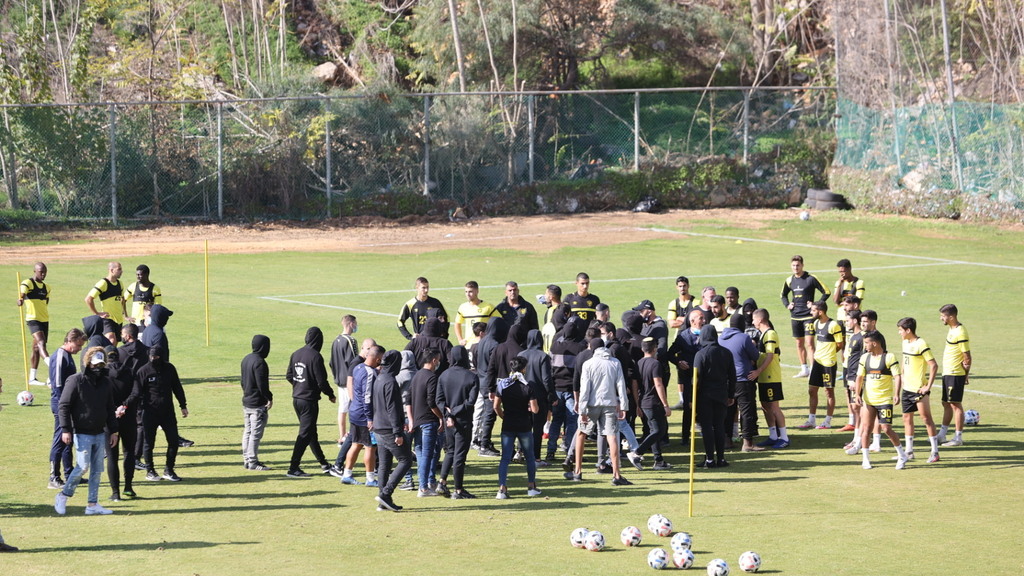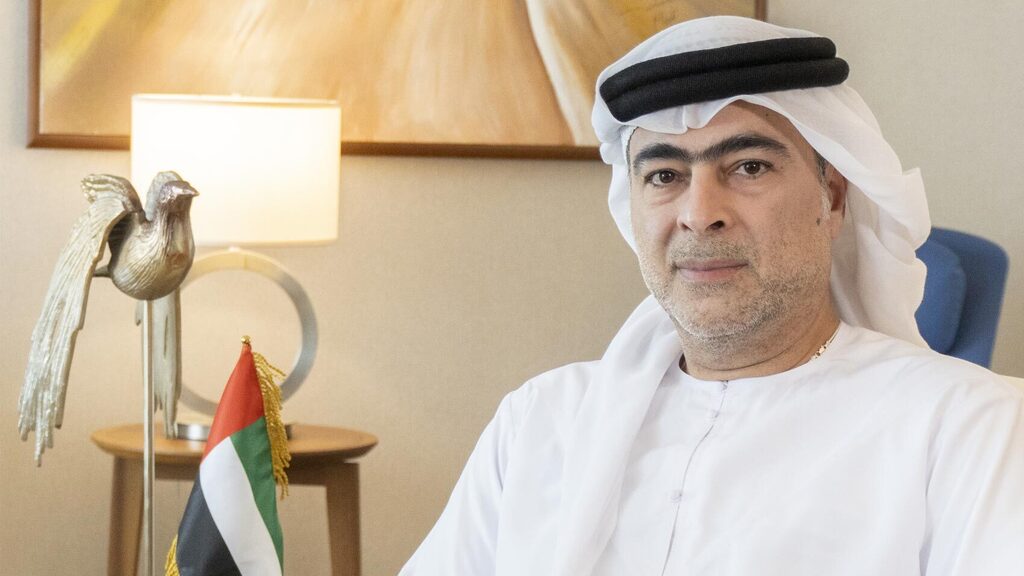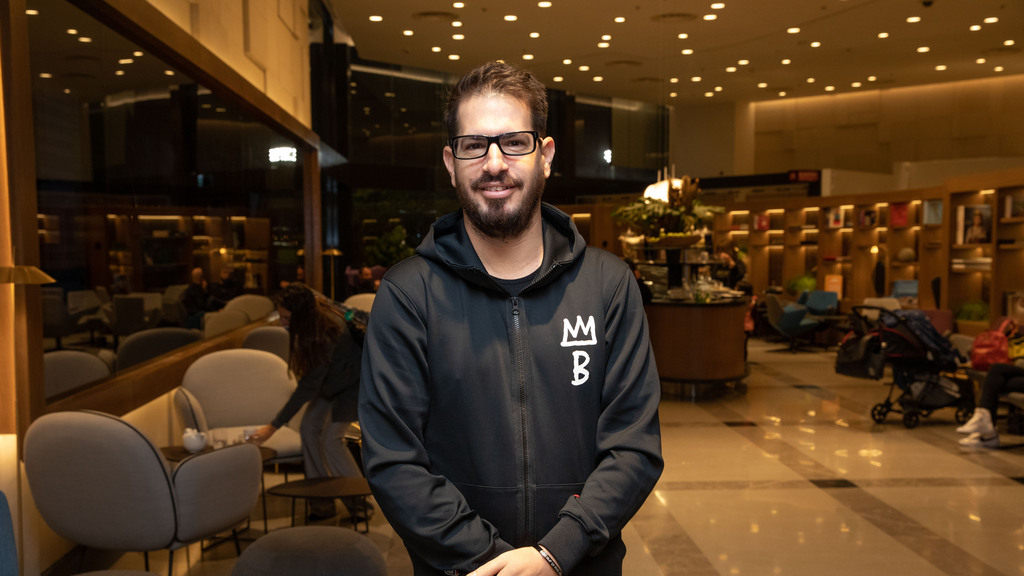Getting your Trinity Audio player ready...
The Emirati businessman who has bought a stake in the controversial Israeli soccer club Beitar Jerusalem said on Tuesday that "the door is open" to adding Arab players to its roster, a step that would make the team the last in Israel to integrate its lineup.
Sheikh Hamad bin Khalifa Al Nahyan and his Israeli partner, Moshe Hogeg, both vowed to turn the team -- which has gained notoriety for its racist fans and ban on Arab players -- into a model of coexistence.
4 View gallery


Beitar Jerusalem players celebrating during a game last month
(Photo: Reuven Schwarz )
"We want to set an example to both nations that Jews and Muslims can work together," Al Nahyan said.
Beitar announced Monday that Al Nahyan had bought a 50% stake in the club, pledging to pump $90 million into the team in the coming decade.
Beitar has gained notoriety for a small core of hardcore fans known for shouting racist epithets. It is the only major Israeli club never to have had an Arab player.
Asked about his plans for the team, Al Nahyan, a member of the Abu Dhabi ruling family, told a news conference that "the door is open" to all players, regardless of of their religion or background. He says he wants to set an example that Jews and Muslims can work together.
"I have heard a lot about the change taking place in the club and the way things are going, and I am happy to take part in that," he said upon signing the deal.
Monday's announcement, following Israel's historic agreement to establish diplomatic ties with the United Arab Emirates earlier this year, upended one of Israeli soccer's most infamous and controversial traditions.
Beitar, loosely linked to Prime Minister Benjamin Netanyahu's Likud party, is one of the country's most storied franchises, winning 13 trophies and counting Israeli presidents and prime ministers among its fans.
But it also has drawn negative attention for being the only major club never to have an Arab player. Israel's Arab minority makes up roughly 20% of the population, and Arab players star on rival teams and the country's national squad.
4 View gallery


Beitar Jerusalem fans barge on the field during team practice earlier this week
(Photo: Uzi Moalem)
Club officials have in the past said their hands were tied by a hardcore base of fans who wield significant clout over personnel decisions. A small group of fans, known as La Familia, have been known to whoop like monkeys when an opposing team's player from Africa would touch the ball and chant "death to Arabs" toward opposing Arab players.
Both Hogeg and Al Nahyan said that such behavior would not be tolerated.
"I fought [racism] since my first day [at the club] and until the last," Hogeg said. "It does not deter us, and our potential partner is aware of this threat and it is part of the reason we must act to show that Muslims and Jews can do very beautiful things together without fear."
Asked about the possibility of adding an Arab player to the roster, Al Nahyan said: "Our door is open for all the talent, no matter what is his religion or wherever he comes from.
First published: 17:14, 12.08.20



